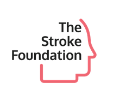Caregiving is physically challenging, time-consuming, and mentally draining — taking care of your mental wellbeing as a caregiver is as important as taking care of others.
“You can’t take care of others if you don’t take care of yourself first.” is a common and very appropriate saying. Your mental well-being as a caregiver is essential to your ability to take care of someone else. In this article, we explore things you can do, or should aim to do, to ensure you are staying mentally healthy.
Schedule in time for yourself
Even if it’s to take a shower, schedule it in! Sometimes our days will get so busy that we will forget to drink water, go to the bathroom, or eat lunch. Use a calendar or day planner to schedule in time for yourself, to do things for you.
For example, set an alarm for 10am every day to remind you to step outside for 5 minutes — and just be outside by yourself. Breathe, close your eyes, listen to the environment you’re in. Take 5 minutes of each day to completely disconnect and give your brain some time to recharge.
Be honest with your limits
How much can you really do without straining yourself physically or emotionally? Caregivers sometimes give themselves full responsibility to do all tasks, at all times, resulting in physical and emotional burnout. Most of the time, caregivers don’t just care for the stroke survivor — they have children, parents, spouses, and pets to take care of too. Be honest with yourself, and with those around you, about how much you can realistically do.
Having an honest conversation can help others understand your needs as a caregiver and offer some support.
Don’t take it personally
Behavioral changes in a stroke survivor are common. Survivors usually experience some degree of frustration, anger, anxiety or depression, particularly in the first months after the stroke. For caregivers, this “sudden” change in attitude can feel personal and hurtful, especially since all you’re trying to do is help. This “sudden” change has nothing to do with you and everything to do with the trauma of surviving a stroke — don’t take it personally.
Seek the support of a therapist or psychologist if you’re struggling to manage these changes in attitude.
Seek support — personal and professional
They say it takes a village to raise a child, but sometimes you need that village to support you as a caregiver. Your friends and family are willing to help, they just may not know what to do. For example, if making trips to the supermarket on a weekly basis is a challenge, ask a friend to pick up some essentials for you when they go.
Similarly, doctors and medical professionals are there to help you. If you have questions about therapies, medications, timelines or anything related to the stroke survivor, you can call and ask. The more questions you ask, the more prepared you’ll be as a caregiver. Doctors and medical professionals can resolve any doubts you may have, refer you to local support groups or put you in touch with someone who may have resources for you.
Practice journaling
Sometimes we get to a point where we are so burnt out and exhausted it’s hard to see anything positive in our lives. Take a notebook or a journal, and every night before bed write down:
Two bad, annoying or challenging things that happened that day.
AND
Two good, rewarding or happy things that happened that day.
Don’t think about it too much — did you manage to drink a full cup of coffee before your day got busy? That’s a good thing! Writing out the positives and negatives of our days can help with managing anxiety, depression, and stress. It helps put things into perspective and end the day on a positive note.
If you do ONE thing for yourself that day, you are taking care of your mental wellbeing. If you need a little extra support, Mental Health America has great resources available to everyone.




